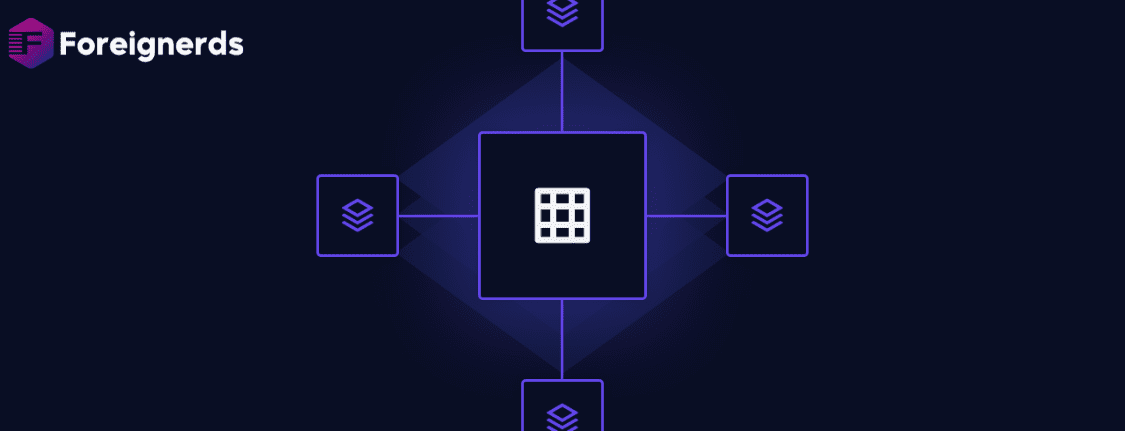- Home
- Design and Development
- Jamstack Introduction

In the ever-evolving landscape of web development, the demand for better and faster websites continues to surge. As technology strives to keep pace with these growing expectations, the term “Jamstack” has emerged as a powerful and efficient approach for building modern websites. You may have encountered names like Louis Vuitton and Re:wild – Leonardo DiCaprio Foundation, who have harnessed the potential of Jamstack to create amazing websites. But what exactly is Jamstack, and what sets it apart from traditional web architecture? This article delves into the heart of Jamstack, providing a comprehensive understanding of this innovative paradigm.
Jamstack: Unveiling the Innovative Web Architecture
Jamstack is not a programming language; rather, it’s a revolutionary architectural concept for website development. The acronym “JAM” in Jamstack represents “Javascripts, API, and Markup.” This architectural approach empowers developers to deliver dynamic websites while serving static files via Content Delivery Networks (CDN). It’s essential to clarify that Jamstack is not a conventional technology stack; instead, it defines a novel way of structuring websites.
The Evolution: How Jamstack Differs from Conventional Methods
The crux of the distinction lies in how data is fetched and served. Traditional websites respond to user requests by generating HTML requests to the server, which subsequently retrieves data for display in the browser. This repetitive process places a substantial load on the server due to the multitude of requests it handles.
Jamstack takes a different approach. Data is retrieved just once and preloaded onto the CDN, making it readily available for serving. When users request content, it is delivered directly from the CDN through pre-built HTML. This approach drastically reduces the number of server requests and enhances website performance.
Exploring the Benefits of Jamstack Websites
Jamstack sites are known for their exceptional speed. With pre-built files delivered via CDN, content loads swiftly, and response times decrease significantly. This results in an improved user experience, as fast-loading websites are favored by users.
Security is a hallmark of Jamstack sites. The separation of the front end and back end, functioning through APIs, renders the process nearly “serverless.” This design minimizes the server’s exposure, making Jamstack sites less susceptible to attacks.
Jamstack sites exhibit exceptional scalability. Unlike traditional websites that may crash under sudden surges of traffic, Jamstack sites can handle massive traffic without overloading the origin server, thanks to the distributed nature of CDNs.
Hosting Jamstack sites is cost-effective. Since these sites primarily consist of static files, the hosting costs are minimal, and in some cases, even free.
The Key Components and Tools for Your Jamstack Journey
Jamstack front-end development involves HTML, JavaScript, and CSS files. Additionally, UI frameworks and web frameworks are essential. Web frameworks, also known as Static Site Generators (SSG), generate static HTML files, while UI frameworks process these files into dynamic and interactive content. Various frameworks such as Gatsby, Next.js, and Hugo simplify the creation of your site.
The back end of Jamstack sites relies on APIs, often implemented through headless Content Management Systems (CMS). These APIs can also be hosted data stores or custom applications. You have a plethora of headless CMS options to choose from to suit your specific needs.
Deploying a Jamstack site is hassle-free, thanks to CDNs. Popular hosting choices for Jamstack sites include Vercel, Netlify, Firebase, and AWS.
Unlocking the Potential of Jamstack: Modern, Efficient, and Cost-Effective
In recent years, Jamstack has gained significant traction as a modern, efficient, and cost-effective architectural approach for web development. Moreover, the Jamstack community continues to expand, providing valuable resources and support for developers. However, it’s important to acknowledge a potential drawback – Jamstack may not be the most beginner-friendly option. To harness its potential, you’ll need to collaborate with developers possessing the requisite skills and experience.
In conclusion, Jamstack represents a game-changing approach to web development, redefining the way websites are built and maintained. Its speed, security, scalability, and cost-efficiency make it a compelling choice for those seeking to create high-performing, user-friendly websites in today’s dynamic digital landscape. While it may pose some challenges for beginners, the benefits it offers make Jamstack a worthy consideration for your next web project.
© 2013 - 2025 Foreignerds. All Rights Reserved